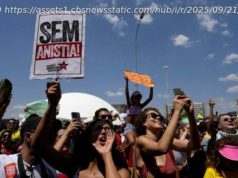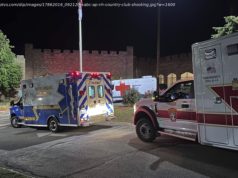And how can universities better handle student protests over Israel’s war in Gaza this fall?
Columbia University president Minouche Shafik is stepping down after protests over the war in Gaza roiled the university community and spread to campuses nationwide, and in Europe, last spring.
“This period has taken a considerable toll on my family, as it has for others in our community,” Shafik said in a letter announcing her resignation Wednesday. “Over the summer, I have been able to reflect and have decided that my moving on at this point would best enable Columbia to traverse the challenges ahead.”
Shafik has faced pressure to resign for months. Both those who supported the spring protests and those who opposed them have criticized how Shafik handled the demonstrations, as did a number of right-wing politicians, who claimed the president failed to do enough to protect Jewish students. House Speaker Mike Johnson called her resignation “long overdue” on Wednesday.
Not all of the spring protests — which largely involved students demanding that their schools divest from companies linked to Israel amid its ongoing war in Gaza — reached the intensity of those at Columbia. Some schools managed to negotiate with protesters to voluntarily dismantle their pro-Palestinian encampments without any police intervention.
At Columbia, however, Shafik swiftly called the police on protesters who had erected an encampment on the university’s main lawn in a display of force that sparked widespread outrage. That decision fueled protests with more escalatory tactics thereafter, and also resulted in a faculty vote of no confidence in her leadership. Things progressed to the point where some protesters eventually took over a campus building before they were forcibly removed by police and arrested.
Now, Shafik has become one of several Ivy League presidents who departed their roles amid the campus furor. The question is not just where that leaves Columbia — now headed by interim president Katrina Armstrong, the CEO of the Columbia University Irving Medical Center — but all universities as students return to campus this fall. Demonstrations are expected to resume as the war in Gaza, in which more than 40,000 Palestinians have been killed, continues and yet another round of ceasefire talks has begun.






